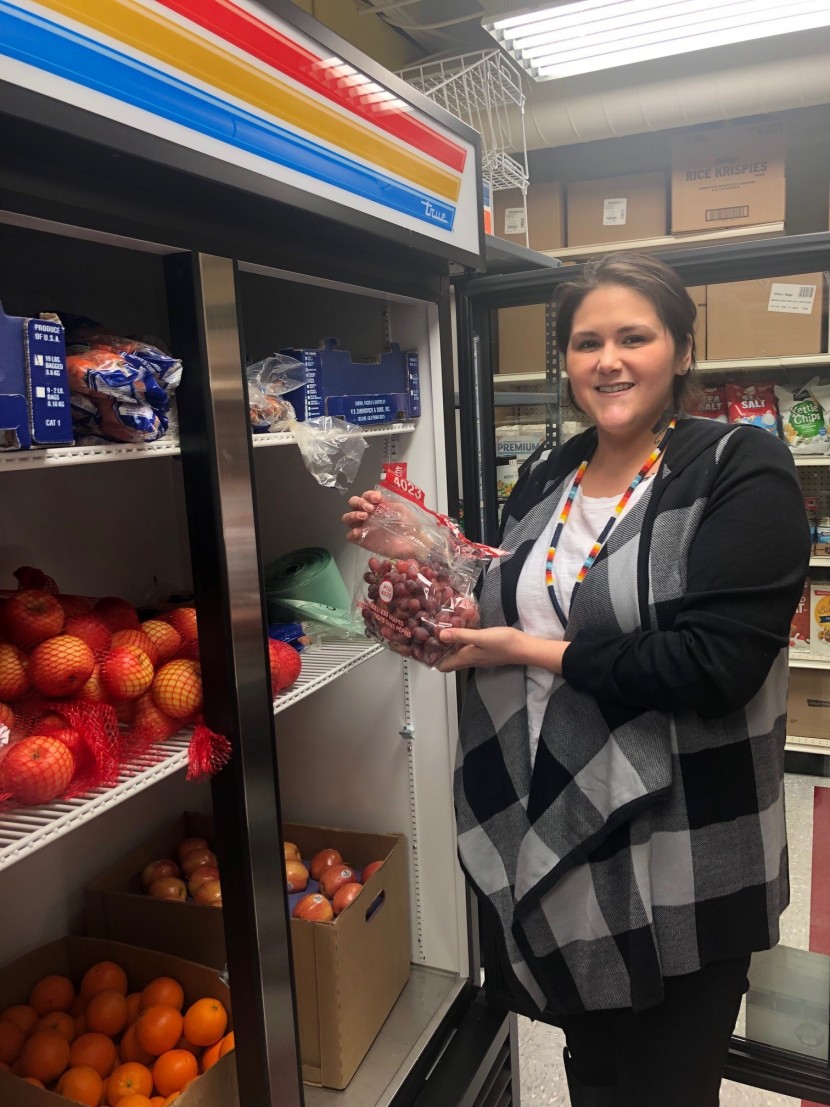
By Toya Stewart Downey Mille Lacs Band Member
Band members and others who are craving culturally specific foods along with other fresh and healthy options have an oa- sis in St. Paul that has become even more necessary in recent months.
The Department of Indian Work’s “super food shelf” is tailored to the Native American community, and during the COVID-19 pandemic, it has increased its services. The program exists within the Interfaith Action of Greater St. Paul — an organization that works to relieve the effects of poverty and address its root causes.
Led by Band member Kelly Miller, who is the director of the Department of Indian Work (not to be confused with the Minneapolis-based Division of Indian Works), the organization partners with American Indian families to revitalize culture, education, and wellness. The organization’s mission is to provide a safe, Indigenous space to empower Native families towards self-determination, while respecting cultural and spiritual diversity.
“Since the pandemic, we have seen an increase of 312 percent of households served,” said Kelly. “We’ve also expanded our service areas because there’s a need.”
The organization has been able to do that thanks to a new partnership with Metro Mobility, which delivers food to families across the metro area. Typically, the food shelf services families in the east metro part of the Twin Cities.
According to Randi Ilyse Roth, the executive director of Interfaith Action of Greater St. Paul, a $12,000 grant from the Minneapolis Foundation helped the organization increase its culturally specific food shelf. With the need growing substan- tially, the food shelf distributes all food in two days’ time. It costs about $15,000 a month to maintain.
“We look like a mini grocery store,” Kelly said. “We have fresh and frozen produce, greens, canned vegetables and fruit, baking goods, cereal, meat, chicken, and fish.”
These days the food shelf isn’t open for walk-in service due to the pandemic, but food is being delivered every two weeks instead. When the building is open, families are welcomed in three languages: Ojibwe, Dakota, and English.
Working within an organization that focuses on Native American families has been a great experience, Kelly said. “We treat families with respect and like they are our relatives,” she said. “It takes a tremendous amount of courage to ask for help and we’re here to help. We’re more than a food shelf; we also work with partners to offer resources, and we
offer youth enrichment.”
They work with families who represent 55 tribes and have 110 households who are affiliated with Mille Lacs. Between March 16 and May 14, the organization served 667 households and delivered more than 24,000 pounds of food. Since the new fiscal year began (July 1 through now), the food shelf has given out over 111,000 pounds of food.
“In the Native community, we take care of each other,” she said. “It is rewarding work.”
Kelly took over as the program director in 2019. Prior to that, she was the organization’s Emergency Services Coordinator — a role she began in 2016. She was also the Intake and Referral Specialist for two months after completing an internship that she got through the Band’s workforce program, Aanjibimaadizing.
Kelly graduated from Onamia High School in 2006 and is taking classes at Saint Paul College for her Associates of Ap- plied Science in Non Profit Management. She plans to attend Augsburg or St. Kate’s for her bachelor’s degree. The mom of two children — a five-year-old daughter and two-year-old son — lived in District I before moving to the Twin Cities.
As the director, one of Kelly’s goals is to build stronger relationships with tribes. She would also like a mobile food shelf now that she has seen how well the partnership with Metro Mobility has worked.
“We’re not conveniently located, so sometimes it’s hard for families to get to us,” she said. “While we have this pandemic, I don’t see us going back to families being able to walk-in and get food. We might have to have a trunk model where we put food in the trunk or adopt an appointment-only model.”